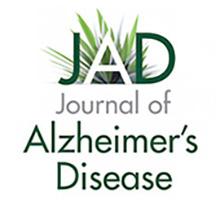29 January 2021

Recent studies demonstrate that styles of life involving interdependent actions of exercise, oriental practices such as QiGong, nutrition, mental, and social activity and mindfulness are effective in preventing Alzheimer's disease and other forms of dementia
Santiago, Chile – This new pioneering study by Prof. Ricardo Maccioni and coworkers of the International Center for Biomedicine, “New Frontiers in the prevention, diagnosis and treatment of Alzheimer's disease” will be published in an upcoming special issue featuring Latin American investigators of the Journal of Alzheimer’s Disease. This supports a growing body of research on the Alzheimer’s prevention value of an integrated approach using daily exercise, nutraceuticals, oriental practices such as QiGong along with meditation, and social life. These elements of a healthy style of life are supplemented with the use of reliable biomarkers for early detection of this disease that allows to detection Alzheimer up to 20 years before symptomatic phase of the disease.
One of the major puzzles in medical research and public health systems worldwide is Alzheimer’s disease (AD), reaching nowadays a prevalence near 50 million people. AD is a multifactorial brain disorder characterized by progressive cognitive impairment, apathy, and mood disorders. The main risk of AD is aging. Studies suggest that AD is a break from normal aging with changes in the powerful functional capacities of neurons as well as in the mechanisms of neuronal protection. There are factors that are determinants of the functional losses during aging, an important part is played by epigenetic components. Thus, the action of genes that confer susceptibility to AD can be mitigated with healthy lifestyles, physical exercise, balanced nutrition, avoiding molecules harmful to health and drugs, as well social life and as practicing active aging during the life cycle, in short, to achieve a healthy aging.
In this context, an important path has been opened towards AD prevention considering the factors mentioned above and the control of neuroinflammatory events (see visual below). On the basis of medical evidence, we conclude that a rational integration of all these factor exert a preventive action against neuronal degeneration in AD providing a better quality of life. Prevention as well as innovative screening programs for an early detection of the disease using reliable biomarkers are becoming critical to control the disease. Our own data suggest that AD is a clear break with normal aging; understanding that this process requires a systems biology-based approach. In addition, the failure of traditional pharmacological treatments and search for new drugs has stimulated the emergence of nutraceutical compounds in the context of a “multitarget” therapy, as well as non-pharmacological approaches shown to be effective in aging, and applied to AD control. An integrated approach involving all these preventive factors combined with novel mutitarget therapeutic approaches should pave the way for the future control of the disease.

Caption: Factors towards AD prevention are mentioned in the figure for the control of neuroinflammatoy events
###
NOTES FOR EDITORS:
Full study: "New Frontiers in the Prevention, Diagnosis, and Treatment of Alzheimer’s Disease" by Leonardo Guzman-Martinez, Camila Calfío, Gonzalo A. Farias, Cristian Vilches, Raul Prieto, and Ricardo B. Maccioni is scheduled to be published in a special issue of Journal of Alzheimer's Disease in Volume 82, Supplement 1 (2021). The paper will be available online in due course at: content.iospress.com/articles/journal-of-alzheimers-disease/jad201059.
Contact
Accredited journalists can contact Diana Murray, IOS Press (+1 718-640-5678, d.murray@iospress.com) to obtain a full copy of the study once it is available or contact the lead author for further information about this work: Ricardo B. Maccioni (rmaccioni45@gmail.com).
About the Journal of Alzheimer's Disease
Now in its 24th year of publication, the Journal of Alzheimer's Disease (JAD) is an international multidisciplinary journal to facilitate progress in understanding the etiology, pathogenesis, epidemiology, genetics, behavior, treatment, and psychology of Alzheimer's disease. The journal publishes research reports, reviews, short communications, book reviews, and letters-to-the-editor. Groundbreaking research that has appeared in the journal includes novel therapeutic targets, mechanisms of disease, and clinical trial outcomes. JAD has a Journal Impact Factor of 3.909 according to Journal Citation Reports (Clarivate, 2020). It is published by IOS Press. j-alz.com
About IOS Press
IOS Press is headquartered in Amsterdam with satellite offices in the USA, Germany, India and China and serves the information needs of scientific and medical communities worldwide. IOS Press now publishes more than 90 international peer-reviewed journals and about 70 book titles each year on subjects ranging from computer science, artificial intelligence, and engineering to medicine, neuroscience, and cancer research. iospress.com







